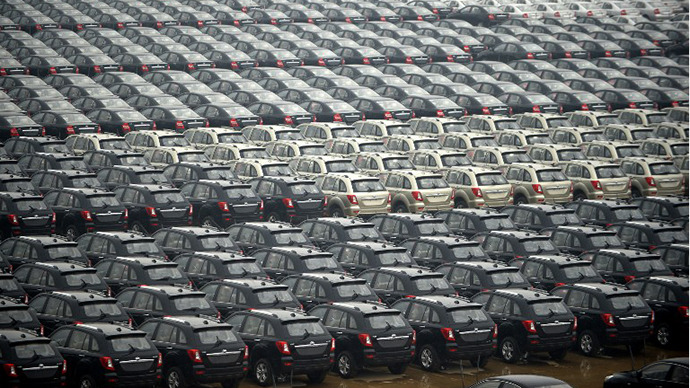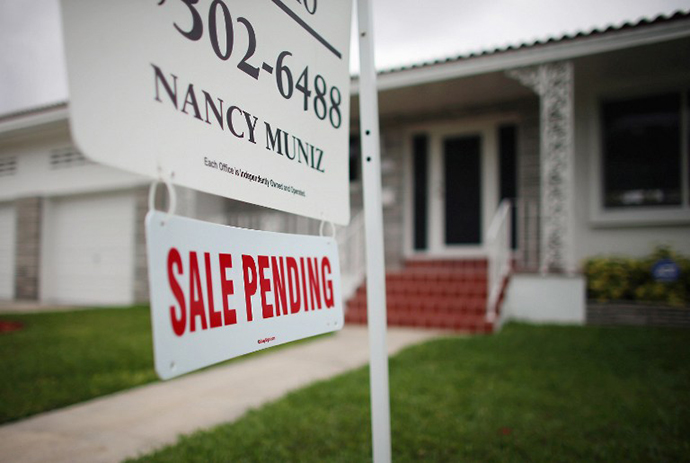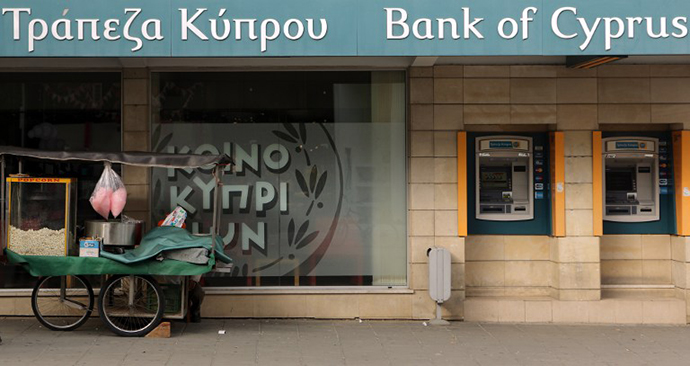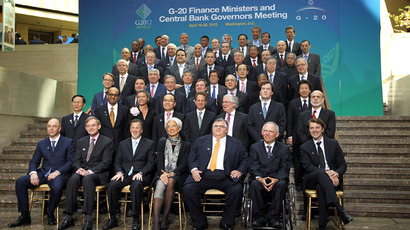Global doldrums: The world’s largest economies are losing steam

The US, the EU, Germany, China and Japan are experiencing sluggish economic growth as international markets attempt to shake off the shackles of the global recession, prompting some to ask whether unpopular austerity measures have cut too deep.
Spring is coming late for the global economy. Recently International Monetary Fund adjusted its forecast for the global economy, projecting it will grow just 3.3 percent in 2013, a prediction that some analysts insist is overly optimistic.
The United States and China are showing strained growth, while recession in the eurozone remains a nagging headache for EU policy makers.
No Spring break in US
Sluggish global economies may have to look elsewhere if they were counting on a robust US economy to serve as a locomotive through the tough times.
Job growth slowed dramatically in March, with payrolls going up by 138,000 workers, which compares to almost the three year best of 332,000 in February. Although the unemployment rate remains at 7.6 percent, some 500,000 Americans dropped out of the labor market altogether, thus skewering the official data.
Some companies may have increased hiring in January and February, in expectation of an economic rebound in 2013, but then switched gears in March when the sales figures failed to meet expectations, John Silvia, chief economist at Wells Fargo, told CNNMoney.
"The slower hiring will certainly make people less optimistic about economic growth going forward," said Silvia.
At the same time, US home sales fell in March, according to the latest data put out by the National Association of Realtors.
The Realtors' report on the sale of previously owned homes on Monday showed the annual sales rate in March came in at 492,000, down 0.6% from February.

Finally, new data released on Tuesday shows US factories reporting their weakest growth levels in six months in April.
The US data “will obviously add significantly to concerns, most recently related to the softer China and German data, that another seasonal slowdown in the global economy is taking hold,” Alan Ruskin, Deutsche Bank’s head of G10 currency strategy, told the Financial Post.
Some are blaming the lacklustre data on the government's deep spending cuts have only just begun, and will total $85 billion through September. They're expected to prevent the U.S. economy from growing beyond 2% this year.
Meanwhile, international corporate bellwethers, like Caterpillar and McDonald’s, have recently pointed to the lacklustre global economy as a drag on their businesses.
The question that many analysts are now attempting to answer is whether the downturn is a temporary blip on the radar screen or the start of something much bigger.
In any case, the sluggish economic indicators inside of the eurozone and the United States are partially to blame for the downturn in one of the world’s hottest economies.
Germany and the EU
The eurozone received a nasty wakeup call when it was reported that Germany, the largest economy in the EU, witnessed a contraction in its services and manufacturing sectors in April.
It was the first drop in business activity in Germany in five months. Now the question arises whether Europe’s stringent austerity measures and budget cuts may have gone too far, leaving the European consumer less willing to spend money.
Some of the economic signals point in that direction. There was an unexpected contraction in EU orders in March to Taiwan, one of the region’s largest suppliers of tech gadgets and appliances.
And who could forget Cyprus, the once-popular offshore tax haven, which recently took the unprecedented and hugely unpopular step of seizing investors’ deposits in a desperate bid to avoid a total collapse of its banking system? Although the move may have saved the island, it did little in terms of restoring a sense of confidence on the continent.

Add to this climate of uncertainty the unexpected drop in German business activity, and the public frustration over deep spending cuts, it appears likely that European Central Bank will continue dropping interest rates in a bid to get Europe spending its money again.
"We stand ready to act again,” said European Central Bank President Mario Draghi.
“With Germany unable to offset the austerity and credit crunch drag on growth in the (less dynamic parts of the eurozone), and with excess capacity growing and business expectations falling, the only question is why the ECB has not cut rates already,” commented Lena Komileva, director of G+ Economics.
As the debate looms, yields on government bonds for Italy, Spain, Portugal and Ireland dropped to their lowest levels in more than two years, on expectations the European Central Bank will eventually be forced to shave its key interest rate.
Chinese dragon snoring
In the first quarter, the Chinese economy grew at a slower pace than economists had expected, raising questions about the rate of recovery in the world's second-biggest economy.
Gross domestic product grew 7.7 percent over the previous year during the first quarter, the National Bureau of Statistics reported Monday. Although that is a bit faster than the government's projected target of 7.5 percent, it is below the 8 percent anticipated by economists.
In the fourth quarter of 2012, growth was 7.9 percent.
Meanwhile, separate reports on industrial production and retail sales also performed less well than expected.
The HSBC Purchasing Managers’ Index for China in April fell to 50.5 in April from 51.6 in March but was still stronger than February’s reading of 50.4.
Asian markets reacted negatively to the news, with most indices falling about 1 percent.

Economists at HSBC, one of the world’s largest banking and financial services company, said the news could prompt more investment by the government in a bid to ensure growth.
"This should prompt a stronger policy response mainly in the format of more fiscal spending in the coming months," they said in a released note. "Once fiscal spending is delivered, growth should be lifted in the coming quarters. But the magnitude of the growth acceleration will depend on the dose of policy response."
The Chinese economy has averaged growth of around 10% a year in the past three decades, but officials, concerned about too much loose credit in the economy as well as the potential for a housing market bubble, do not want to stimulate the economy.
Earlier this month, Fitch, the ratings agency, warned over excessive debt levels in China and delivered a downgrade on the local currency.
Fitch believes local government debt levels are so high that Beijing will eventually be forced to assume part of the burden.
‘Abenomics,’ the Japanese Model
Amidst this low-level panic in the global markets, economic policy makers may require some new ideas aside from unpopular austerity measures.
In a move away from western initiatives, Japan has recently launched a wide-scale stimulus program known as "Abenomics," named after Prime Minister Shinzo Abe. The initiative includes investment in public spending programs and the easing of monetary policy from Japan's central bank.
It may take some time for Japan’s experiment in Keynesian economics to take hold. Andrew Kenningham, senior global economist at Capital Economics, said he expects the Japanese economy to grow just 1 percent this year.
"The massive monetary stimulus should lead to higher inflation in the short term, but it is not clear that it will lead to stronger economic activity," Kenningham told CNN.
Japan's demographic situation also presents a problem. Japan's ageing population and shrinking labor force point to sluggish growth down the road.
And Japan is certainly not alone as it travels down that road, as many of the world’s biggest economies are wondering if poor first quarter results are an ominous sign of things to come, or just another part of the business cycle.














